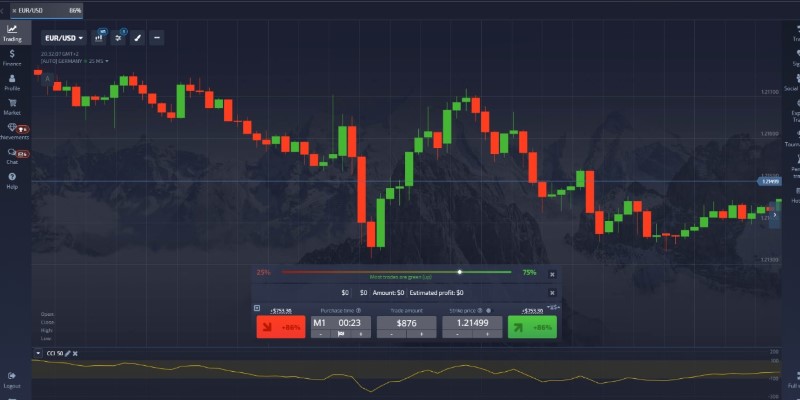What Exactly Is Bond Valuation?
Nov 03, 2023 By Triston Martin
Valuing a bond is a method used to estimate the bond's true market worth. The value of a bond is determined by its face value or par value at maturity and the present value of its interest payments, commonly known as its cash flow. Investors use bond valuation to ascertain whether or not a bond investment is beneficial, given that the par value and interest payments are set.
Bond Valuation: What You Need to Know

In coupon payments, bonds are a type of financial instrument that can guarantee a regular flow of income to the investor. At the bond's maturity date, the holder receives back the bond's face value in full. A few of the hallmarks of a typical bond are:
Coupon Rate
Interest, or the coupon rate, is paid semiannually to bondholders on some bonds. Until the bond matures, the investor receives a fixed return, or coupon rate, on their investment at regular intervals.
Maturity Date
Bonds can range in duration from very brief to very lengthy. At the time of the bond's maturity, the issuer must pay the investor the bond's face value in full. Bonds issued by corporations often have a face value of $1,000, whereas bonds issued by governments typically have a face value of $10,000. Bonds can be purchased or invested at a discount from their face value.
Bond Valuation in Practice
Bonds play a crucial role in the financial markets. Therefore investors and analysts need to grasp how its constituent parts interact with arriving at a bond's true worth. A bond's value, like a stock's, is crucial in deciding whether or not it should be included in a portfolio.
Bond valuation estimates the present value of the bond's future coupon payments. The present value of a bond's coupon payments may be estimated to arrive at its theoretical fair value.
Yield to maturity, the rate of return a bondholder would earn if they re-invested each coupon payment at the bond's stated interest rate until maturity, is used as the discount rate.
Valuation of Bonds with No Coupon Payments

Bonds with zero coupons do not receive coupon payments throughout their term. Instead, it is issued at a discount and sold at a steep reduction from face value. Interest earned by the investor on a bond is the amount by which the purchase price exceeds the par value.
A zero-coupon bond's value can be determined by its present value relative to its face amount. Using the same parameters as before, the price of a two-year, zero-coupon bond with a $1,000 face value, a 3% yield to maturity rate, and a 1% coupon rate would be $942.59.
Can Bonds Be Valued Like Stocks?
Not quite. Discounted cash flow analysis calculates the net present value of a security's future cash flows and is commonly used to value stocks and bonds. In contrast to stocks, bonds have two distinct parts: the interest is paid periodically, and the principal is refunded at maturity.
My Bond Is Worth Less Than Its Face Value—Why Is That?
There is typically a discrepancy between a bond's face or par value and its actual market value. This depends on several variables, such as whether the bond is secured or unsecured, the bond's interest rate, the creditworthiness of the issuing firm, the length of time before maturity, and the existence of any call clauses or other embedded alternatives. T
Why Do Bond Prices Lag Behind Interest Rates?
The value of a bond with a set coupon will go down when interest rates rise. This is because if market interest rates are 6%, obtaining a fixed interest rate of, say, 5% is not very appealing, and it becomes much less desirable if rates may earn 7%.
That bond paying 5% would have to trade at a discount to the new bond paying 7% for it to be considered "equivalent." Similarly, when interest rates fall to 4% or 3%, a bond with a 5% yield becomes more valuable than a freshly issued bond with a lower coupon.
The Value of Bonds: What Is Duration and Why Does It Matter?
Bonds are valued based on the net present value of future cash flows after discounting for risk. As an alternative, duration assesses how much a bond's price might shift in response to a 1% shift in interest rates. Bonds with a longer maturity have a higher duration. The impact of a change in the discount rate on the NPV of longer-maturity bonds is greater since there are more future cash flows to discount for these bonds.

Why is it Hard to Get Approved for a Personal Loan
Dec 25, 2023
Get over the challenges of securing a personal loan. Explore common obstacles and expert tips to improve your chances of approval

Deed of Reconveyance
Jan 15, 2024
When a mortgage has been paid off, a deed of reconveyance will be provided. The reconveyance deed is the legal document that verifies that the title of the property has been transferred from the lender to the borrower. So, what is a deed of reconveyance?

Accelerating Digital Finance: How Tech Providers Assist Financial
Nov 06, 2024
Learn how financial institutions partner with tech providers to make RTP and FedNow onboarding faster and more seamless, helping them speed up payments and tap digital finance opportunities.

What Are The Benefits And Drawbacks Of Angel Investors?
Feb 21, 2024
A business angel is a wealthy individual who makes a personal investment in a small company in return for a minority ownership share (often between 10% as well as 25%). Individuals most likely to become angel investors are those who have already established themselves as company owners or have substantial professional expertise. There is more to angel investing than simply money. An angel investor's time, expertise, network, and business savvy are all valuable assets to any company that accepts investment from one.

How to Trade Binary Options: A Step-by-Step Guide
Aug 27, 2024
What binary options are, how they work, and a practical example in this easy-to-understand guide. Learn the basics of binary options trading and key details to get started

Your Ultimate Guide on Umbrella Companies and Their Advantages
Dec 08, 2023
Curious about umbrella companies and their perks? Dive into this simplified guide to discover the numerous advantages they offer.

Who Should Look Into Shenandoah Life Insurance Company Reviews?
May 10, 2024
Among the Shenandoah Insurance options, they offer term and permanent plans. The company provides reasonable rates, particularly to healthy people.

Consumer Existentialism: How Stuff Shapes Our Lives and Values
Aug 31, 2024
Explore the impact of consumer culture on our values and choices, advocating for ethical consumption and the pursuit of authenticity and meaningful connections.

Income Tax vs. Capital Gains Tax: A Comprehensive Guide
Oct 05, 2024
Learn the key differences between income tax and capital gains tax, and discover strategies to optimize your tax liability while enhancing your financial health.

How SeedFi Borrow and Grow Personal Loan Works?
Oct 31, 2023
Read the comprehensive review of SeedFi Borrow and Grow Personal Loan. In this article, we have considered credit unions, alternative internet lenders, and credit-builder loans!

How To Save Money When Eating Out: Clever HacksTo Save Money On Dining Out
Nov 01, 2024
Save half of your meal, use credit cards, share meals, and benefit from loyalty programs or coupons when dining out to save money

What Exactly Is Bond Valuation?
Nov 03, 2023
A bond is a type of financial instrument corporations, and governments use to raise money for certain purposes. By purchasing such debt securities, investors are essentially making loans to the debtor. The bond's structure determines whether the borrower pays a fixed or variable interest rate yearly.